Focus on polished concrete vs resin floors
Focus on polished concrete vs resin floors
Are you struggling to select the best flooring for your home extension or garage conversion?
Hard-wearing concrete has been used for years in garage and basement floors while seamless resin is often seen in hospitals and clinics. Today, thanks to new techniques and more attractive finishes, they are fast becoming the flooring materials of choice for contemporary interiors. Both polished concrete and resin offer homeowners attractive, alternative flooring options, but that doesn’t mean either material is right for your project. Read our concise guide to learn more.
Polished concrete: the hard facts
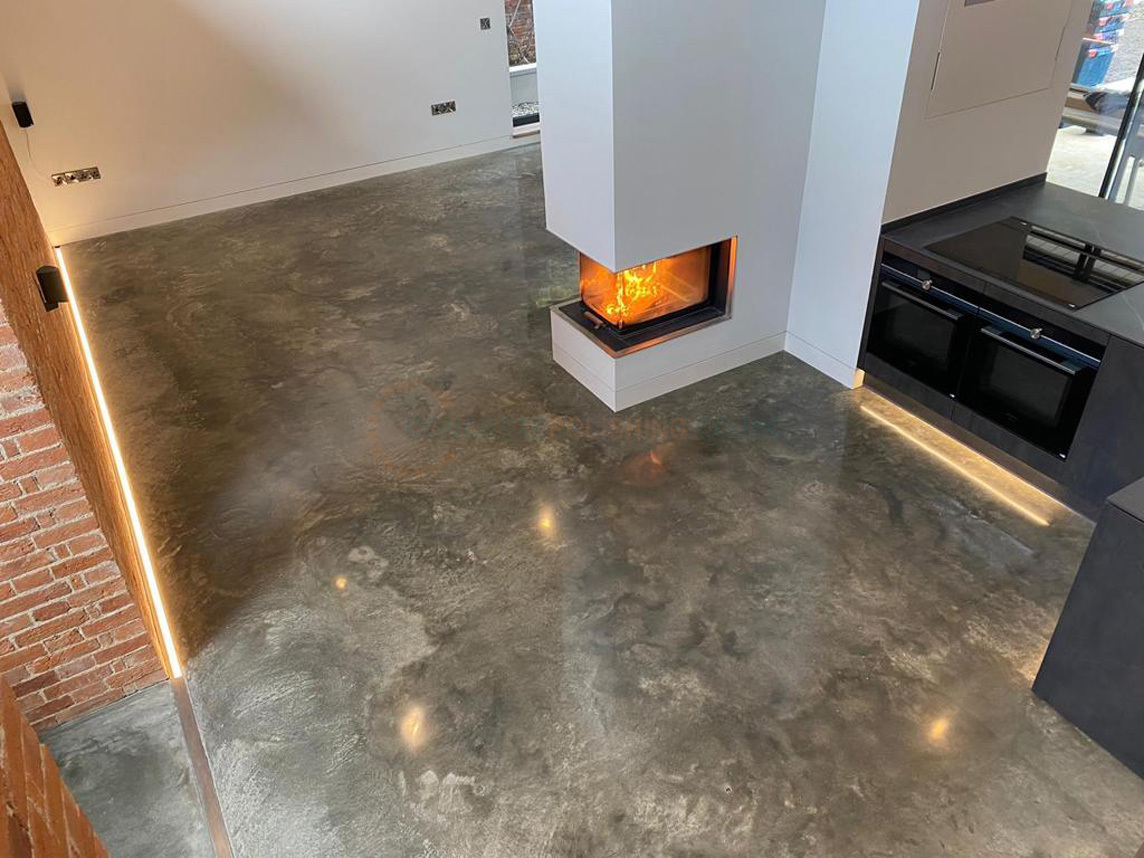
Image supplied by Concrete Polishing
Polished concrete is a concrete floor that has been chemically treated and mechanically ground to a sleek, shiny surface. It’s no longer just a material for those wanting an industrial look but can be used for all kinds of interiors, including period properties.
Polished concrete is made using concrete – gravel, cement, water and sand – with added chemical densifiers. The densifiers fill in the holes and pores in the concrete. The poured or slabbed concrete is then mechanically ground on site with industrial diamond polishing tools to achieve the desired finish.
Polished concrete pros
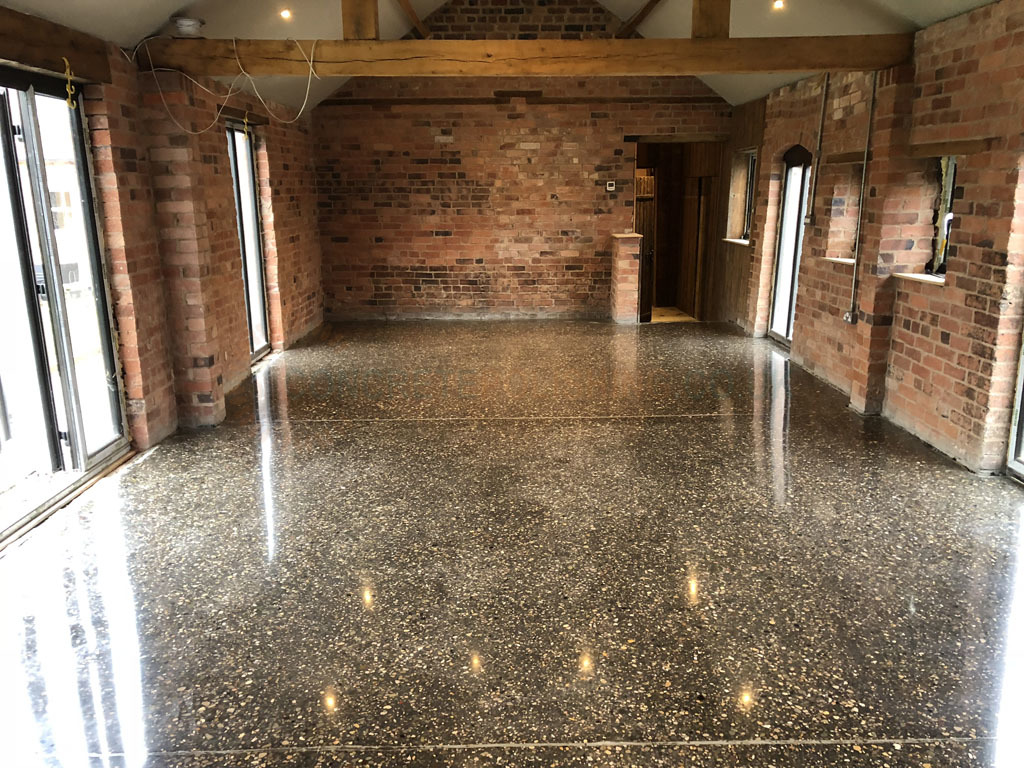
Image supplied by Concrete Polishing
It has a long list of benefits, including:
- Lasts a lifetime – the hard-wearing properties of concrete mean that it is extremely durable and able to withstand heavy use without getting chipped or scratched.
- Environmentally friendly – polished concrete is made from natural materials (sand, gravel and water). It will absorb and hold heat well.
- No need to have another flooring layer above – avoiding the extra carbon footprint associated with manufacturing, transporting and installing additional materials.
- Attractive and versatile – finishes include super smooth and glossy, rustic effect and exposed aggregate. There is plenty of choice to complement all kinds of interiors.
- Works well with underfloor heating – making it wonderfully warm under foot.
- Hygienic and low maintenance – a mop with soapy water is all that is required to keep the floor clean.
- Inside-outside spaces – polished concrete is also suitable for exterior use, so is perfect for blurring the boundaries when bifold or sliding doors have been incorporated into a design.
Polished concrete – cons
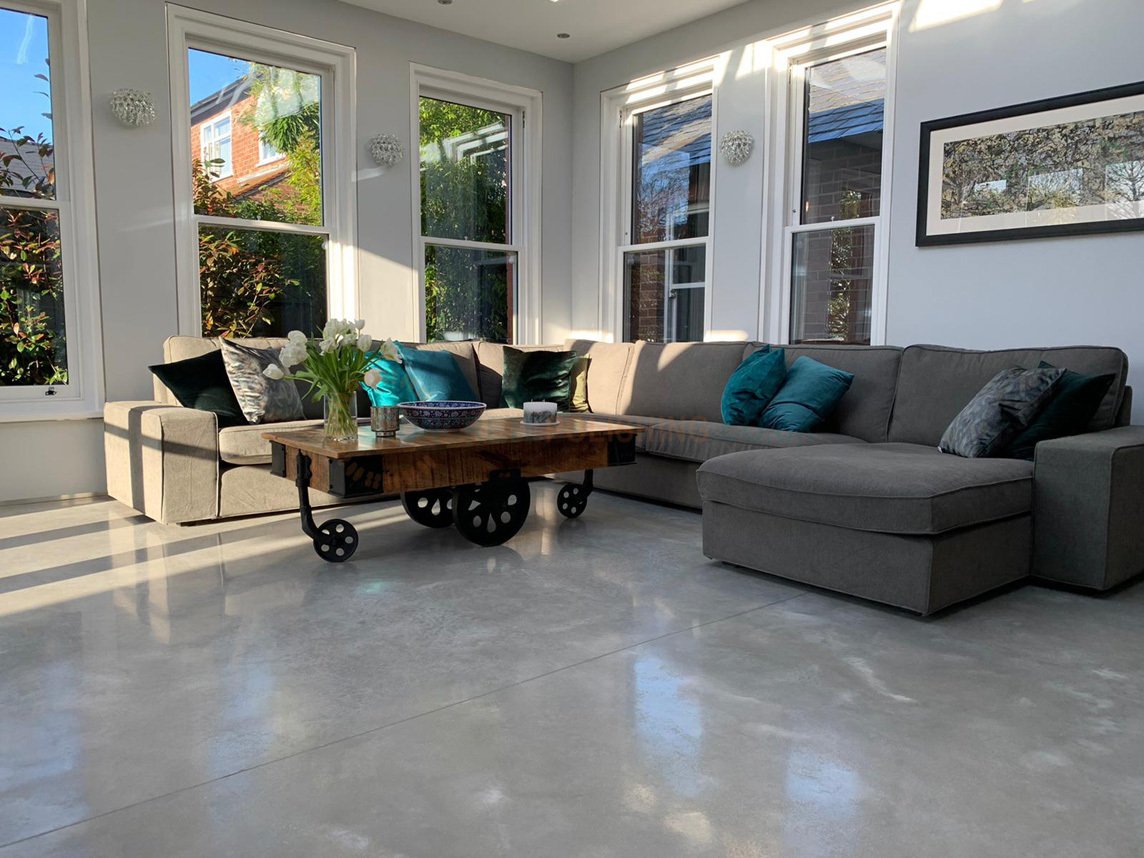
Image supplied by Concrete Polishing
- Green wash - concrete is not biodegradable and uses a lot of water in its production, so the jury is out on its eco-credentials.
- Heavy - When retrofitting a concrete floor, a structural engineer will need to check the building is structurally sound enough to support the extra weight.
- Length of drying time – it takes between two to four weeks to “cure”, meaning it will be some time before you and your household can walk on a new concrete floor without leaving footprints (or pawprints).
- Messy – the pouring process can result in splatter, so you will need to remove doors, skirting and architraves before work starts and refit them after.
- Height – concrete is typically poured in one slab about 10cm thick. It may be possible to raise the level of the whole floor if the plan is concrete throughout but otherwise you may need steps to link with the rest of the house.
- Preparation - with existing concrete floors, the condition will determine if polishing is an option. Cracks can be repaired but if the quality is too poor, the concrete will either need to be replaced or a special concrete overlay applied.
Resin –the hard facts
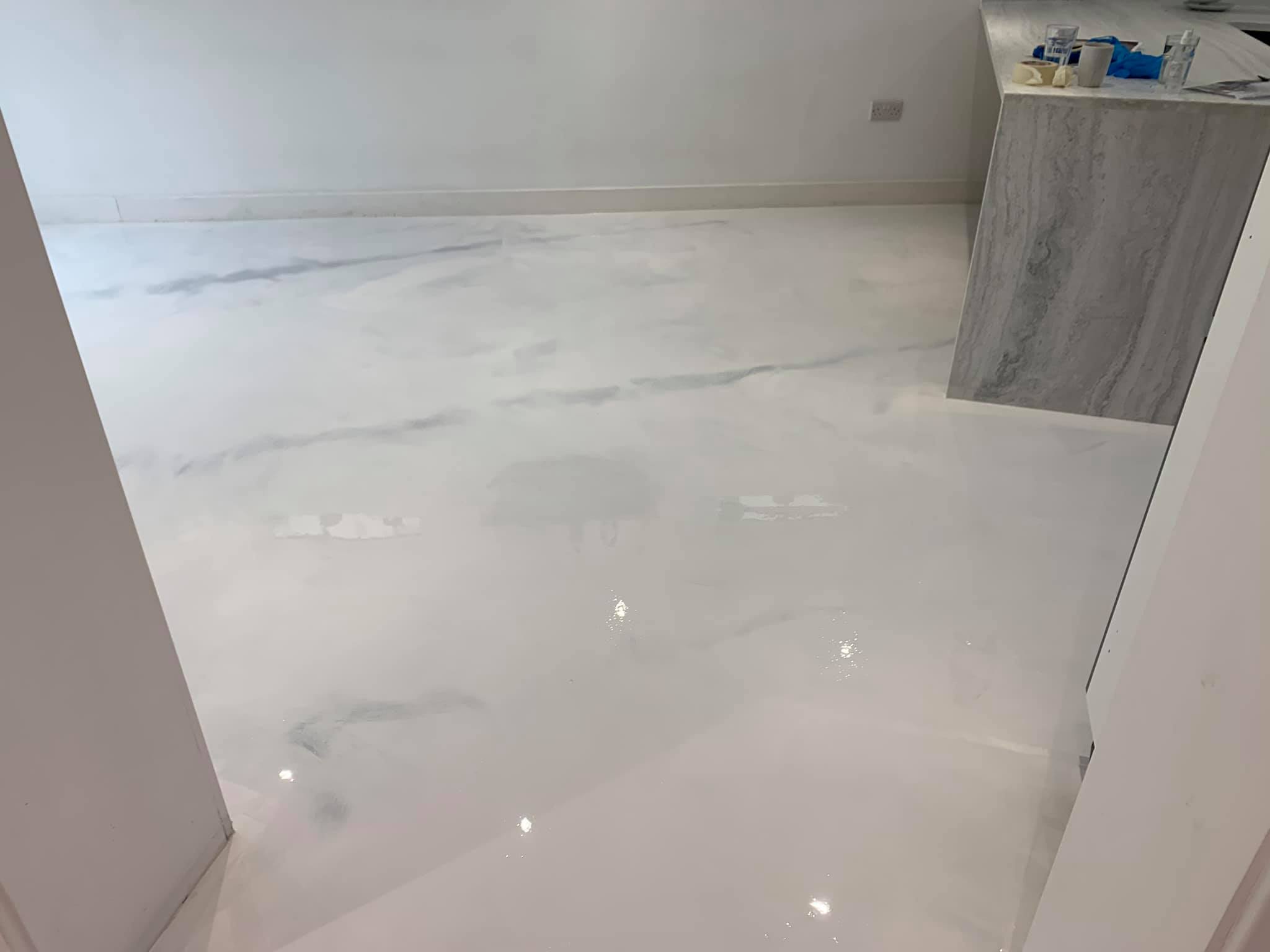
Image supplied by Floormac
Resin flooring is commonly made from materials such as polyurethane, epoxy and MMA systems (which get their name from the methyl methacrylate catalyst that is central to its formation). Epoxy has traditionally been the most popular form of resin flooring largely due to the wide variety of colours and decorative effects available. Polyurethanes, meanwhile, dominate the thicker, more robust end of the resin flooring range. MMA resin floors can fully cure in less than two hours, thanks to the latest technology. This makes it ideal for projects requiring a quick turnaround.
It is also possible to buy a natural resin floor made from sustainable polymers.
Resin - Pros
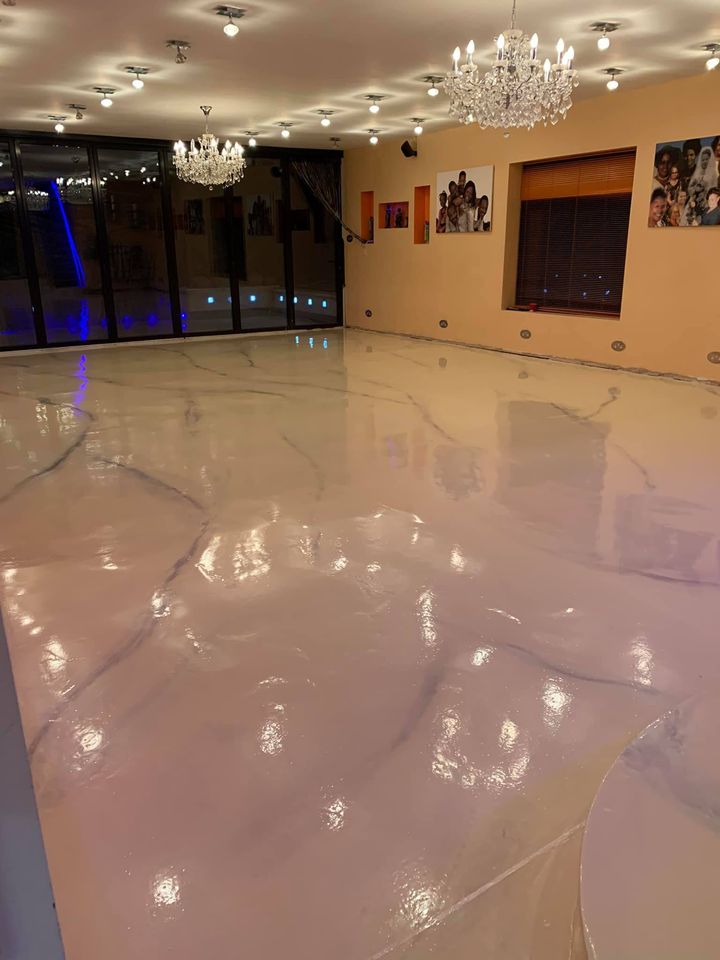
Image supplied by Floormac
- Durability – provides heavy duty, hard wearing flooring.
- Seamless – joint free flooring with no grout lines or skirting is ideal for high traffic areas like the kitchen or bathroom.
- Easy to clean - The smooth and even surface is easy to mop, making it a hygienic choice often seen in hospitals and clinics.
- Aesthetically pleasing – comes in a wide variety of colours and metallic effects. The smooth, elegant sheen can add a luxury aesthetic.
- Compatible with underfloor heating – and is warmer to walk on than concrete.
- Suitable for outdoor environments – the tougher polyurethanes can produce an attractive, natural looking floor finish for outside areas.
Resin - Cons
- Temporary - Although valued for durability, epoxy floors have a shorter lifespan than concrete and will have to be replaced eventually.
- Everyday wear and tear will take its toll on epoxy resin flooring. Cracks can develop and chipping can be a problem. It may need a new coating to keep looking good.
- Preparation - A significant amount of work is required to prepare a floor for epoxy paint. A concrete floor must be dried, cleaned and crack-free, for instance.
- Application - Resin flooring emits strong fumes during installation. It is necessary to buy and use special protective goggles and breathing devices when applying these chemicals. Professional installation is recommended.
The are many pros and cons to using polished concrete or resin floors. Both can be expensive and are a big investment. It may well be that more traditional flooring, such as tiling, can achieve the look you want at a more affordable price. Ask your architect for advice and compare quotes from suppliers. While flooring might seem like a finishing touch to your home extension or garage conversion, it’s worth considering early in the design process.
